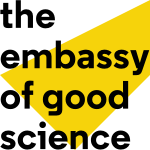 According to the Research Ethics Act, researchers are required to act with due care to ensure that all research is conducted in accordance with recognized research ethical norms. This also applies to preparations for research, reporting of research, and other research-related activities.
According to the Research Ethics Act, researchers are required to act with due care to ensure that all research is conducted in accordance with recognized research ethical norms. This also applies to preparations for research, reporting of research, and other research-related activities.
The law imposes a responsibility on research institutions to ensure that research is conducted in an ethically sound manner, specified as the obligation to provide employees and students with training in research ethical norms and to make the norms known to all those who conduct or participate in research (§ 5. Requirements for research institutions).
Fundamental research ethical norms involve:
- Protection of individuals/groups, animals, and nature.
- Social responsibility; relevance, resource utilization, etc.
- Integrity in all stages of the research process.
The Importance of Research Ethics

Research ethics entails values and norms for the responsible conduct of research. These values and norms are developed by the research community itself, based on good and bad experiences throughout history. Research ethical norms raise awareness among researchers and society in general about ethical issues that arise in modern research, and they can provide guidance on how to address these issues in a responsible manner. Sound research ethical considerations also promote the quality of research and can prevent malpractice or irresponsible research practices.
Research ethics consists of moral values and norms, not legal rules. The Research Ethics Act obligates researchers to be familiar with these norms and to act responsibly, but legal rules do not describe the actual implementation of these duties. With the help of these norms, as a researcher, you must assess the potential harm, disadvantages, and resource loss that your research could potentially inflict upon research participants/society/nature, and strive for minimal intrusion. For a research project to be defensible, the overall risks should not exceed the project's societal benefits.
Research ethics largely revolves around protecting research participants. They should be informed that their rights, integrity, and health safety are safeguarded in the project they are involved in. Research ethics requires, to quote the philosopher Immanuel Kant, that participants are not merely used as a means but also treated as an end in themselves.
A simple step you can take to assess whether the project you are planning adequately safeguards the participants is to ask yourself questions such as:
- Would I like to be researched on in that manner? Would I be okay with someone systematically analyzing my social media profiles without my consent? Would I be willing to invest so much time and subject myself to the tests and interrogations that my project entails? Would I like to know where my personal information ends up? Did the informed consent document I drafted provide enough information?
Violations of Research Ethical Norms
An important purpose of research ethics is to ensure responsible research practices. Violations of recognized research ethical norms for good scientific practice can vary in topic and severity but can be broadly categorized into two groups:
- Scientific misconduct (fraud): Deliberate misconduct; falsification, fabrication, and plagiarism (FFP), and other serious violations of recognized research ethical norms committed intentionally or with gross negligence in the planning, execution, or reporting of research, as stated in the Research Ethics Act § 8.
- Questionable research practices (QRP) : Often more unconscious, less severe, and harder to detect than FFP. QRP is easily influenced by values and expectations, and any disagreements or doubts that arise should be resolved locally as far as possible.
Awareness of ethically sound research should emerge and be maintained in the good practices where researchers are socialized to know, understand, appreciate, and adhere to good research practices, and not tolerate deviations from them. Each researcher should be part of an academic community that has well-developed and effective ways of self-critique and has over time developed research practices that safeguard the development of reliable knowledge. FFP and QRP should be identified and addressed as early as possible to minimize the consequences, and every researcher should be aware of the procedures for reporting such situations. - (read more: Research Integrity Commitee at INN)

Working with Research Ethics at HINN
The Research Ethics Act requires research institutions to take responsibility for providing researchers with training in research ethics and informing them about new and updated research ethical guidelines (§ 5). How is this work carried out specifically at HINN?
Firstly, regarding the division of labor:
 The regulatory work is typically an administrative task led by the Vice-Rector for Research and the Research and Development Committee.
The regulatory work is typically an administrative task led by the Vice-Rector for Research and the Research and Development Committee. - The normative work involves value anchoring and clarifying expectations, driven by leadership and in collaboration with the rest of the organization.
- The cognitive work consists of learning, teaching, and discussions among researchers, research groups, colleagues, and supervisors.
This indicates that the institutional level plays a central role in driving and facilitating each researcher's ability to work according to research ethical norms. Furthermore, researchers, leaders, and administration collectively need to actively engage with national and international guidelines for research ethics (research integrity).
"The European Code of Conduct for Research Integrity lays out reliability, honesty, respect, and accountability as fundamental principles of research integrity. Most researchers aspire to translate these principles into responsible research practices to achieve high quality, trustworthy results. It is crucial that Research Performing Organisations (RPOs) empower and enable researchers to act responsibly and minimise the risk of violations to research integrity". (Source: Guideline for promoting research integrity in research performing organisations - 2021)
To maintain a high research ethical standard, the tripartite division should be reflected in all plans and measures related to research ethics. Hierarchical and top-down implementation is bound to fail – the work must be conducted in collaboration among researchers, leaders, and administrative staff with competence in research ethics. Additionally, every researcher, especially senior researchers and supervisors, should be aware that their behavior and conduct influence the kind of culture or lack thereof that exists within a research environment.
Leaders and managers at HINN should take steps to promote a good and safe working environment, create forums for discussing ethics and integrity, and avoid explicit demands and intense competition for publication points, obtaining external funding, etc., which can compromise quality and sideline research ethical principles.
Resources for improved planning and implementation (putting principles into practice) for leadership and researchers include:
In employee discussions or other forms of local assessments, leaders should ask questions concerning research ethics. The specific questions that can be asked are further elaborated in this list.
In this report series, you can read about the state of research ethics in Norwegian research institutions:
- Research Integrity in Norway (RINO): Sub-reports: Ethics and Integrity in Research, Questionable Research Practices, and Research Integrity in Context.
These documents provide tips on how research ethics can be addressed and integrated into research activities:
- Research integrity: nine ways to move from talk to walk: Counselling, coaches and collegiality; How institutions can share resources to promote best practice in science.
- Promoting Integrity as an Integral Dimension of Excellence in Research: Tools for research leaders and managers: addressing and stimulating integrity in research organisations.
- SOPs4RI: Guideline for promoting research integrity in research performing organisations
Research Ethics Training at HINN - Responsibilities and Topics
INN has chosen the General Guidelines for Research Ethics, developed by the National Research Ethics Committees in 2014, as the starting point for raising awareness and providing training in research ethics principles. Furthermore, there are detailed professional guidelines provided by the National Committee for Research Ethics in Science and Technology (NENT), Medicine and Health Sciences (NEM), or Social Sciences and Humanities (NESH). Additionally, the "European Code of Conduct for Research Integrity" is a central document.
Research misconduct should always be a central theme in the training, including definitions, causes, consequences, and preventive measures. For a researcher, it is about being able to define and recognize possible misconduct within their own research field and academic community and knowing how to report it.
Role and Task Distribution of Research Ethics Work at INN 2022-23:
|
WHO |
WHAT |
WHERE |
| Leadership - Main responsibility: Vice-Rector for Research | Request updated action plans, guidelines, and reports. Contribute to dialogue on ethical practices | Leadership meetings and gatherings. Research and Development Committee. |
| Dean and Vice Dean for Research | Responsible for promoting and specifying norms, culture, and learning for their respective researchers, including PhD candidates and master's supervisors. |
Relevant meetings |
|
Employees |
A recurring topic at the research group and/or department level. |
Group meetings |
| Research Administration Advisors |
Stay updated on regulations and guidelines. Stay informed about news and best practices in the field of research ethics training and knowledge dissemination. Facilitate ethical assessments in grant applications to the Research Council, EU, etc. |
Website. Newsletter. External courses. |
| Administrative staff (research and HR) | Follow up on newly hired > see next row. |
|
| Newly hired employees | Familiarize themselves with guidelines, as well as systems and procedures at INN. | Orientation session for new hires organized by HR. |
|
FResearch group leaders |
Driving force for quality and responsible practices within the group. Take responsibility for incorporating ethics as a mandatory topic in grant applications to the Research Council (NFR) and EU prepared by the research group. Assess the need for independent ethical evaluation from REC or Local ethics committe. |
Integrert i forsknings-ledelseskurs. |
| Supervisors | Ethical guidelines for supervisors. Supervisors as role models. Promote ethical reflection. |
Integrated into existing supervisor courses and forums. |
|
Ph.d.-candidates |
Training and reflection on quality and integrity in research. Training in privacy, reporting obligations, and data security. |
Mandatory subject in Ph.D. courses. |
|
Master's students |
Same as above (scaled down). Can be seen in relation to academic integrity and professional/ work ethics. |
Should be integrated into most study programs. |
|
Bachelor's students |
Same as above, further scaled down, and related to academic integrity and professional/ work ethics. |
« |
|
The library |
Has a special role focused on citation and publishing practices, including co-authorship. |
Ongoing guidance |
| Other advisors (related, e.g., IT) | Fundamentals of research ethics with particular emphasis on privacy. | Training of research advisors. |
Research misconduct and whistleblowing

Research misconduct is traditionally defined as fabrication, falsification, or plagiarism (FFP categories)::
- Fabrication involves inventing data and presenting results as if they were real.
- Falsification/forgery is manipulating research materials, equipment, or processes, or making unjustified changes, omissions, or distortions of data or embellishing results.
- Plagiarism is using other people's work and ideas without proper acknowledgment, thus infringing on the original author's right to be credited for their intellectual work.
FFP is considered particularly serious and direct violations of good scientific practice. However, there are other breaches of good research practice that harm the integrity of research and erode trust in society. (Source: The European Code of Conduct for Research Integrity, 2017)
Whistleblowing is the act of reporting or disclosing suspected research misconduct, which can be done by individuals who have knowledge or evidence of such misconduct. Whistleblowers play a crucial role in maintaining research integrity and upholding ethical standards. It is important to have effective mechanisms in place to encourage and protect whistleblowers, ensuring that their concerns are addressed appropriately and that they are not subjected to retaliation.
Whistleblowing is the act of reporting or disclosing suspected research misconduct, which can be done by individuals who have knowledge or evidence of such misconduct. Whistleblowers play a crucial role in maintaining research integrity and upholding ethical standards. It is important to have effective mechanisms in place to encourage and protect whistleblowers, ensuring that their concerns are addressed appropriately and that they are not subjected to retaliation.
Both the institution, research groups, and individual researchers must contribute to counteracting research misconduct. Preventive measures include training, guidance, and mentoring, as well as developing a positive and supportive research environment that includes research ethics awareness and knowledge. At the same time, both research leadership and administrative leadership should always focus on the indirect causes that can lead to an unacceptable gap between research ethical norms and actual behavior. This gap can arise when norms are unclear, due to inadequate training, the emergence of power structures and pressure, social conformity and a culture of fear, publication pressure, and intense competition for research funding. Additionally, different cultures between institutions, disciplines, and countries can create norm conflicts and misunderstandings. (Source: Research Integrity in Norway "RINO project", UiB).
Research misconduct must be reported The Research Ethics Act (§ 6) requires that HINN has a reporting system for suspected misconduct and an integrity committee that handles reported cases.
Employees, students, external collaborators/researchers, organizations, research participants, or others who have experienced, witnessed, or discovered possible unethical and reprehensible practices in research where Høgskolen i Innlandet is responsible should report this.
Read more about reporting possible violations of recognized research ethical norms on the university's 'Report' page regarding reporting/warning about 'Reprehensible Research Ethical Practices'.
Reported cases are handled by the Integrity Committee shared by Høgskolen i Innlandet and the University of Southeast Norway.
Research misconduct must be reported
The Research Ethics Act (§ 6) requires that HINN has a reporting system for suspected misconduct and an integrity committee that handles reported cases.
Employees, students, external collaborators/researchers, organizations, research participants, or others who have experienced, witnessed, or discovered possible unethical and reprehensible practices in research where Høgskolen i Innlandet is responsible should report this.
Read more about reporting possible violations of recognized research ethical norms on the university's 'Report' page regarding reporting/warning about 'Reprehensible Research Ethical Practices'.
Reported cases are handled by the Integrity Committee shared by Høgskolen i Innlandet and the University of Southeast Norway.
Example Store - Research Ethics Dilemma
What constitutes research ethically questionable practices? When has it reached a point where suspicion of scientific misconduct is justified? Could I myself be at risk of ending up in such situations, and can I recognize it in myself and others? Research ethics as a topic in education and collegial gatherings can easily become superficial and abstract. Discussing examples/cases is a proven method to generate engagement, but it's not always easy to come up with them on your own. Therefore, the following freely available example banks can make a significant contribution to teaching and discussions:
Dilemma Game

The Dilemma Game was developed at Erasmus University Rotterdam to stimulate open and critical discussions about integrity and ethics in research. The game involves participants choosing from a sorted list of over 100 realistic dilemmas, each with four different proposed solutions. Participants assess, choose, and defend their chosen option, and may reconsider their decision. Expert evaluations are provided for some of the dilemmas. There are no winners or losers in this game, as research ethical dilemmas are often too complex for such a framework. The game is intended to contribute to the development of a solid moral compass to guide research practice.
The game can be played individually, in groups, and during lectures using mobile phones. Dilemma cards are also available in PDF format. Additionally, the Dilemma Game app can be downloaded from Google Play or the App Store, providing a "dilemma of the month" with notifications on mobile phones. Here is an example of a case taken from the Dilemma Game:
-
As a researcher, I published a new article in a highly prestigious international journal. The article was praised for its thoroughness and scientific breakthrough. While working on an ensuing paper, I realize that I made a mistake in the analysis of the previous paper, which has a high impact on the results. What do I do? A - I do nothing. B - I write a correction note paper and send it to the journal. C - I use my current paper to remedy the mistake, but in such a way that no one will notice the mistake in the first paper. D - I discuss the issue with one of my supervisors and follow their advice.
Go to Dilemma Game for more practical information and a list of dilemmas.
The Embassy of Good Science
The Embassy of Good Science is a result of the 'Horizon 2020 Science with and for Society' project and aims to promote research ethics/research integrity through various tools such as guidelines, educational materials, scenarios, and a collection of 500 dilemmas/cases that can be sorted by field and role. Each case has a link to another source and an information button with a summary (i - about).
 Go to 'Resources - Materials that help you in your everyday research partice to do Good Science."
Go to 'Resources - Materials that help you in your everyday research partice to do Good Science."
Other
- Ethics Portal NTNU: Collection of 42 dilemmas (cases) divided into 11 focus areas.
- Abelia's research ethics dilemma training: Abelia FFA, which is the research institutes' common platform, has developed a digital setup, both in Norwegian and English, with 15 dilemmas mainly related to contract research. There is no correct answer; the answers must be found collectively through reflection and by using national and international guidelines linked in the cases.
- The national research ethics committees: Discussion examples/cases that can serve as a starting point for reflection and discussion on research ethics questions.
- Publication Ethics: COPE (Committee on Publication Ethics) aims to promote good ethical publishing practices and has, among other things, a collection of ethical dilemmas related to publishing. Retraction Watch: A blog that reports on the retraction of scientific articles and also has a searchable database with around 25,000 cases.
- The national research ethics committees cover most of the information needs that Norwegian researchers have regarding research ethics and research misconduct. Here you can find relevant national legislation and guidelines, a research ethics library, teaching suggestions, external links, and much more. It is recommended for everyone to subscribe to the Magazine Forskningsetikk, either digitally or in print.
 De nasjonale forskningsetiske komitéenes dekker de fleste informasjonsbehov norske forskere har om forskningsetikk og uredelighet i forskning. Her finner man de relevante nasjonale lovverk og retningslinjer, et forskningsetisk bibliotek, forslag til undervisning, ekstern lenkesamling og mye mer. Alle anbefales å abonnere på Magasinet Forskningsetikk, enten digitalt eller på papir.
De nasjonale forskningsetiske komitéenes dekker de fleste informasjonsbehov norske forskere har om forskningsetikk og uredelighet i forskning. Her finner man de relevante nasjonale lovverk og retningslinjer, et forskningsetisk bibliotek, forslag til undervisning, ekstern lenkesamling og mye mer. Alle anbefales å abonnere på Magasinet Forskningsetikk, enten digitalt eller på papir.
Ethical considerations in project planning
In any project description or research protocol, ethical assessment is either mandatory or expected. This primarily applies to health research, research involving vulnerable groups of people, and research involving animals. Additionally, ethical assessment is required in any application for external funding for a research project.
As a researcher, it is important to be aware that ethical assessment and legal compliance regarding data protection regulations (GDPR) are two different things. If you have submitted a notification to the Privacy Services in Sikt (formerly NSD), this is not an ethical assessment. While the proper handling and storage of personal data is an ethical concern, research ethics encompasses much more.
In general, ethical assessment should begin from the very first day as a means to achieve high research quality and to provide a broad perspective on the chosen topic. Do not wait until the last minute before the submission deadline and end up copying some general research ethics phrases. If there is any doubt, set aside time for discussion to potentially reassess the goals and objectives of the project. Do not assume that the chosen research topic can rely on general research ethics principles without considering what is actually planned and in what context.
Research ethics assessment should encompass external considerations and also have an internal focus with a plan on how the research group/project team will ensure high ethical standards in the execution of the research, aiming to prevent questionable research practices (QRP) and, in the worst case, research misconduct (FFP).
The key elements involve weighing the benefits and risks for the planned project:
- Specify predictable benefits or advantages now or in the future for each individual participant, for the group level (the group from which participants are recruited), and for society and/or science.
- Specify possible risks/disadvantages now or in the future for each individual participant, for the group level, and for society and/or science.
- Measures to reduce or limit risks and disadvantages, including preparedness for unexpected events and findings.
- Why is it justified to conduct the project? Provide a reasoned evaluation of the pros and cons of the research project. The disadvantages imposed by the research on participants and the resources (time/money) required by the project must be weighed against the research's benefits for society and value for the participating group.
Other considerations to be made during the planning phase include ensuring that the methods can provide answers to the research questions, that only the necessary data is collected, and that participants are provided with clear information about what participation entails.
EU guidelines - Research ethics
Research ethics is a central topic in applications to the EU for funding research projects. If the ethical self-assessment in the application is weak or insufficient, the application will not be successful.
Leaders of EU-funded research projects are required to provide regular reports. These reports should include reflections on measures and events that have research ethical implications.
The European Commission has developed guidance notes and checklists, both generic and discipline-specific. These serve as effective guidelines for other research projects funded through different sources as well.
How to complete your ethics self-assessment (2021)
Identifying serious and complex ethics issues in EU-funded research (2021)
Guidance note - Potential misuse of research (2021)
Ethics in Social Science and Humanities (2021)
Research Ethics in Ethnography/Anthropology (2021)
Guidance note - Research on refugees, asylum seekers & migrants (2020)
Global Code of Conduct for Research in Resource-Poor Settings (2021)
Ethics by design and ethics of use approaches for Artificial Intelligence (2021)


